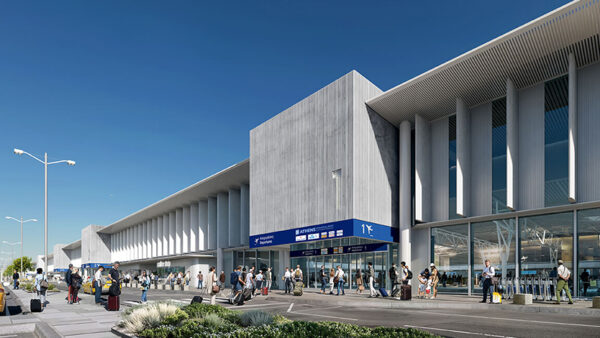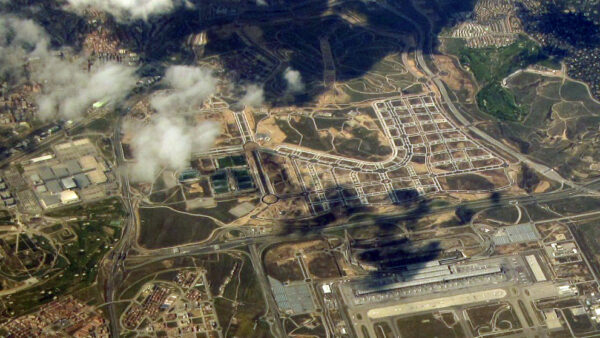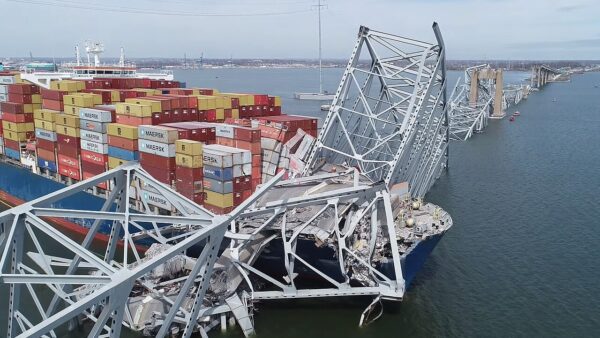Nicaragua’s planned $50bn interoceanic canal will be good for people and the environment if it is built and managed properly, but the government and the Chinese developer must start doing things differently if serious harm is to be avoided, the project’s consultants have warned.
The secrecy surrounding the project has to end, and inexperienced developer HKND must acquire the necessary capability to build the canal, the consultants said.
HKND should also prove it has the cash to build the waterway with the right environmental controls, failing which the government should deny project approval, said ERM, the UK consultancy hired by HKND to prepare an impact assessment.
An international panel of experts should also be assembled to review the design and constructability of the canal, and an independent third party should be appointed to oversee the project to counteract the “high level of mistrust in Nicaragua”, said an executive summary of ERM’s report, which was unexpectedly released to the public this week by HKND.
And while the canal would be good for the country if it is built and managed to international standards, ERM said, the government and HKND are already falling foul of those standards in 21 areas including consultation with affected people, disclosure of information, assessing environmental and social risks, preventing pollution, and emergency preparedness.
‘Fraught with risks and uncertainties’
Few companies have ever constructed anything comparable to the Canal de Nicaragua and HKND needs to develop the internal policies, procedures, standards, systems, and other mechanisms to provide assurance of its capacity to successfully complete an undertaking of this size and complexity– ERM report
The summary sets the canal plan in the context of rampant and accelerating deforestation already underway in Nicaragua and concludes that building it according to internationally recognised environmental standards, and with a comprehensive reforestation programme, would be better than not building it.
But ERM warns that the scheme is “fraught with risks and uncertainties”, and concludes that failure to meet many strict conditions could leave Nicaragua “worse off than doing nothing”.
“If the Project is not constructed in accordance with international good practice and the proposed mitigation measures are not properly implemented; or if the Project’s business case is not realized and the predicted longer term indirect and induced benefits from the Project do not occur; or if construction of the canal is not completed, Nicaragua may be worse off than doing nothing,” the summary stated.
ERM urged an end to the secrecy that has characterised the government’s approach to date, and notes the violent protests that have resulted, calling for proper consultation with people set to be displaced or economically disadvantaged.
ERM calls for an international expert panel to be allowed to review the engineering design and constructability of the canal in light of seismic hazards and the significant consequences of failure.
“This Project would be one of the largest civil works projects in the world,” the summary states, “with segments being constructed in a seismically active, remote, and/or high precipitation areas, rich in biodiversity and a critical source of fresh water for Central America (i.e., Lago de Nicaragua), where a project failure would have significant consequences, all of which combine to make the design and construction of this Project a significant engineering feat.
“For these reasons, ERM recommends that the Government of Nicaragua establish an international expert panel to review the engineering design and constructability of the Project, especially relative to seismic hazards, water management, and failure modes for all main structures to ensure the protection of public safety and Lago de Nicaragua.”
Lacking experience
The summary also questions the capability of the developer, HKND, to undertake a project of this scale. Formed only two years ago by the billionaire Chinese telecoms mogul Wang Jing as the development vehicle for the canal, it lacks the organisational structure and qualified personnel such a project would need, ERM said.
“Few companies have ever constructed anything comparable to the Canal de Nicaragua and HKND needs to develop the internal policies, procedures, standards, systems, and other mechanisms to provide assurance of its capacity to successfully complete an undertaking of this size and complexity,” its summary stated.
The Nicaraguan government itself must also get involved, and cannot leave environmental protection and social issues to HKND, which lacks the legal authority to carry out some proposed mitigation measures, ERM said.
ERM recommends that a third party provide independent oversight and verify Project monitoring and publicly issue a report at least semi-annually on the Project’s environmental and social performance–
The government should go further and seek help from a body such as the World Bank in overseeing the project, because it, too, lack the necessary experience.
“Like HKND, the Government of Nicaragua has not had experience with a project of this magnitude,” said the summary. “In order for Nicaragua to fully realize the benefits of the Project, and to minimize environmental, social, and economic risks, the Government would be wise to consider engaging with international development agencies, such as the World Bank or Inter-American Development Bank, for assistance with capacity building for managing development issues (e.g., influx).”
‘High level of mistrust’
To counteract the “high level of mistrust” surrounding the project, ERM urged the involvement of an independent non-governmental organisation (NGO) or consultant to provide oversight and reporting.
“ERM believes there is a role for civil society in this Project because there is a high level of mistrust in Nicaragua regarding the Project, which the involvement of an independent trusted third party could help overcome,” the summary stated.
“ERM recommends that a third party provide independent oversight and verify Project monitoring and publicly issue a report at least semi-annually on the Project’s environmental and social performance.
“HKND should also consider funding participatory monitoring involving representatives from affected communities, which again would help restore trust and rebuild relationships with affected communities.”
ERM “strongly recommends” that the government require HKND to comply with environmental mitigation measures and independent oversight before letting the project go ahead.
It also urged the government to require proof from HKND that it has enough money to complete the canal, because abandoning a partially built canal would be the worst-case scenario.
HKND has refused so far to reveal how it plans to fund construction over the scheme’s tight, five-year construction schedule, leading to speculation that the government of China might back the project.
Further doubts about HKND’s ability to fund the canal were raised this week when Bloomberg revealed that Wang Jing’s fortune had been cut by 85% amid China’s stock market slump.
ERM concluded by strongly recommending that the government allow an adequate period for public review and comment on the project, including a review of the full impact assessment by Nicaraguan and international experts, and to “carefully consider this input in making its decision”.
This week HKND announced that a “massive reforestation program” will be launched in conjunction with the canal project.
Last month it pushed back the start of full construction to 2016 to make time for four additional environmental studies ERM said were needed.
Photograph: Proposed route of the Nicaragua Canal (HKND)
See also:
Comments
Comments are closed.











There are other considerations.
The land will be confiscated and paid at either tax registration value , which is original value 30, 50 years ago, maybe 30 % or less of today´s price or commercial value whichever is LOWEST. This amount to confiscation without compensation, in benefit of the Chinese company.
Nicaragua will be split in two by canal and the Chinese Co. is not obligated to build bridges or tunnels between the two parts, as shown other that two in an extension of almost 300 kms.(As said in their own summary presentation).
Confiscated landowners , about small owners 7000 in total have no legal recourse, no right of appeal, experts can not review project and there is no recourse either for the confiscated landowners and peasants nor for the country if HKND chooses
not to build the canal but build something different and more viable to them, like a retirement community for Chinese retirees, hotels, golf courses, casinos, etc… all of that separated from Nicaragua by a a fence .
The entire project is an outrage that should not be tolerated by the civilized world.